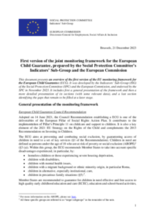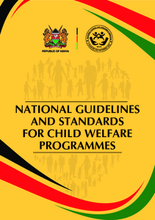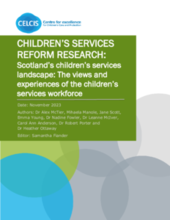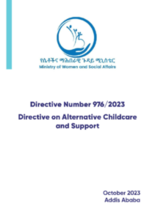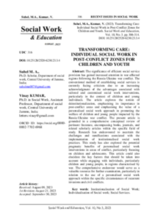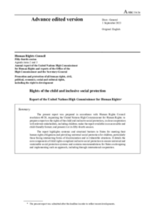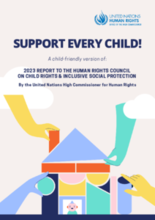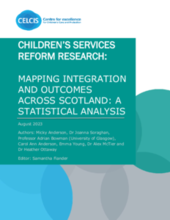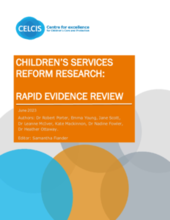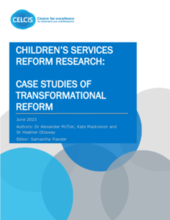Displaying 11 - 20 of 461
This document presents an overview of the first version of the EU monitoring framework for the European Child Guarantee (ECG). It was developed by the Indicators’ Sub-Group (ISG) of the Social Protection Committee (SPC) and the European Commission, and endorsed by the SPC in November 2023.
These guidelines provide minimum standards to be adhered to in the provision of Child Welfare Programmes; The guidelines will also provide a framework within which state and non-state actors shall develop, design, and implement childcare and welfare programmes to enhance child rights, strengthen family and community-based care.
This report explores, through responses to an online survey, interviews and focus groups, the opportunities, challenges, barriers and facilitators that members of the workforce identify as factors which bring about high quality experiences and outcomes for children, young people and families using services; close multi-agency working between practitioners across different services; continuity of support when young people transition to adult services; high quality support for the workforce and transformational change in services.
Recognizing the increasing number of orphans and vulnerable children (OVC) and the need to provide standardized and quality alternative childcare and support services, The Ministry of Women and Social Affairs (MOWSA) in collaboration wit
The article explores the notion of deinstitutionalization, emphasising its importance in post-conflict areas and emphasising the value of a personalised social work approach in promoting the welfare of children and young people impacted by the Russia-Ukraine war conflict.
The present report was prepared in accordance with Human Rights Council resolution 49/20, requesting the United Nations High Commissioner for Human Rights: to prepare a report on the rights of the child and inclusive social protection, in close co
The OHCHR submitted the first-ever child-friendly report, conducted with over 600+ child participants worldwide. The premise of this report is based on children's right to social support. Most children cannot access social aid and protection and, therefore, cannot access their other rights.
Mapping integration and outcomes in Scotland: A statistical analysis investigated if the most recent major structural reform of health and social care services to take place in Scotland has had an impact on outcomes for children, young people and families.
Strand 1: Rapid Evidence Review reviewed existing published national and international research evidence focused on better understanding the evidence associated with different models of integration of children’s services with health and/or adult social care services in high income countries, as defined by the World Bank.
Case studies of transformational reform programmes examined a range of approaches to the delivery of children’s services to better understand the evidence regarding systems-level integration between children’s social work/social care with health services and/or adult social care.

